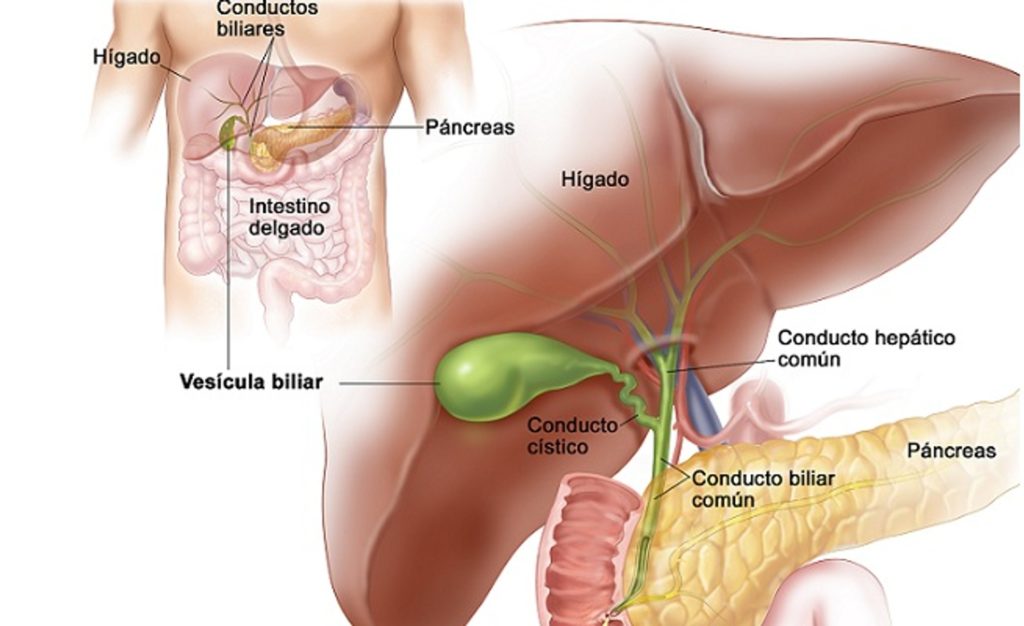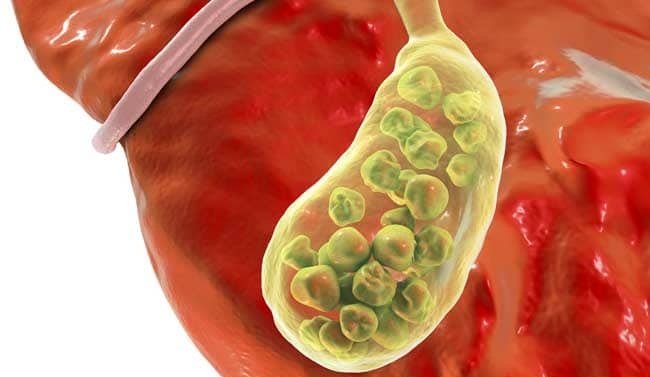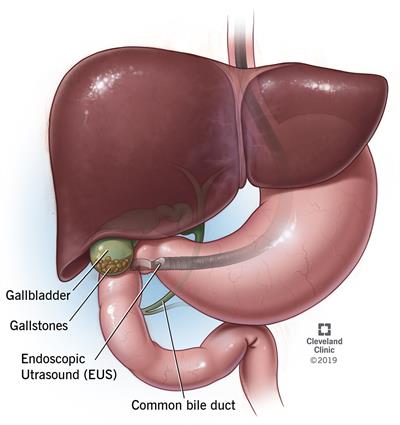Gallstones are formed over a period of time when the residual bile in the gall bladder hardens to form stone-like substances. The bile is secreted by the liver and passed on to the gall bladder which in turn passes it to the intestines for digestion to take place. In a few cases, the gall bladder does not totally empty itself and the bile remains collected in the gall bladder.
Gall stones may also be caused due to higher amounts of bilirubin in the gall bladder, excessive cholesterol secreted by the liver or due to the mixing of Ceftriaxone with cholesterol in the gall bladder. At the initial stages, most patients do not have any symptoms of gallstones. Abdominal pain is mostly felt only when the gallstones become too big that they block the bile ducts and hinder the bile movement between the liver, gall bladder, and the intestines.

What are the signs and symptoms of Gallstones?
The intensity of the gallstones symptom varies for each patient and there can be mild to extremely severe symptoms for the critical patients. The gallstone pain attacks usually occur in the night after the patient consumes a high-fat meal. Mentioned below are the few typical symptoms of gallstones that the patient and his family must be aware of:
- Continuously increasing pain in the upper abdomen that may last from a few minutes to a few hours
- Pain at the back, particularly in between the shoulder blades
- Severe pain in the right shoulder
- Nausea accompanied by vomiting
- Constant sweating
- Low-grade fever and chills
- Yellowish skin colour and even jaundice in some rare cases
- Bloating in the abdomen
- Indigestion and a constant feeling of having overeaten food
- Intolerance to all kinds of fatty food
- Clay-coloured stool
The silent gallstones, called so as they do not have any signs and cause no pain or discomfort, can be left untreated as they do not interfere with the normal functioning of the gall bladder, liver, and the pancreas.
A few times, the gallstone pain attack symptoms are often confused with a heart attack, stomach ulcer, hernia, pancreatitis, appendicitis, hepatitis, or irritable bowel movements. The patient must ensure to cross check with the doctors before planning to undergo treatment for any medical issue.
What are the most common causes of Gallstones?
- Obesity – Overweight and obese people are at an extended risk of gallstones owing to the high-fat accumulation in their body.
- Diabetes – Diabetic patients have enhanced levels of fatty acids called triglycerides in their body and this increases their probability of developing gallstones.
- Gender – Women are twice more probable of having gallstones as compared to the men.
- Age – Most people over 60 years of age have gallstones and it does get worse for a few of them who are ignorant of the importance of a healthy diet and regular exercise.
- High cholesterol treatment drugs – Medications that are prescribed by doctors to help treat patients with increased levels of body cholesterol may also develop gallstones as these cholesterol treatment drugs lead to an increase in the cholesterol secreted into the bile by the liver.
- Estrogen – Increased levels of the estrogen hormone due to pregnancy, birth control pills or hormone replacement therapy can also lead to an increase in the cholesterol levels secreted by the liver thus restricting the gall bladder movement.
- Quick weight loss – During rapid weight loss, the human body metabolizes fat which forces the liver to secrete higher levels of cholesterol into the bile, thus increasing the chances of gallstones.
- Fasting – Fasting for days together or failure to eat timely meals often leads to decreased gall bladder movements thus causing accumulation of bile in the gall bladder.

How can you prevent and reduce the risk of Gallstones?
Although there is not a definite way to prevent gallstones, if you follow the below-mentioned safety measures, you can significantly reduce the chances of developing gallstones.
- Strive to maintain a healthy body weight by exercising regularly and measuring your BMI
- Eat balanced meals at regular intervals. Include fibers, whole grains, and calcium in your daily routine.
- Limit fatty food consumption and foods that are high in cholesterol.
- Do not diet to lose weight hastily
- Do not fast too often and do not skip meals
- Frequently monitor your cholesterol levels to keep them under control
Can Ananya Gastroenterology help cure gallstones?
Absolutely YES! Dr. Ananda Kumar is a renowned gastroenterologist with 27 years of experience in successfully treating even the most severe cases of gallstones. Dr. Ananda advises a treatment only after proper physical and medical examination of the patient. He also ensures to cross-check the patient’s medical history and learns about any allergies that the patient may be suffering from.
As gallstones are primarily a result of a poor lifestyle, Dr. Ananda ensures to guide all his patients and encourage them to follow the best practices for a healthy lifestyle. Schedule an appointment for a satisfactory consultation and treatment by Dr. Ananda Kumar at Ananya Gastroenterology. Book now!

